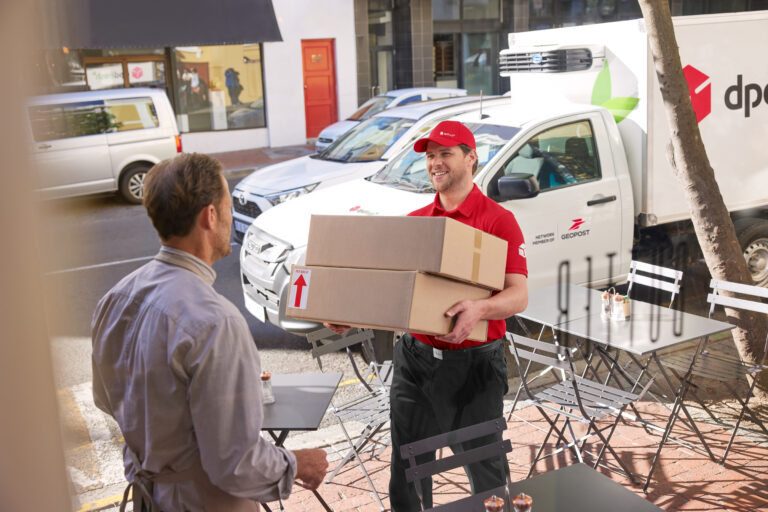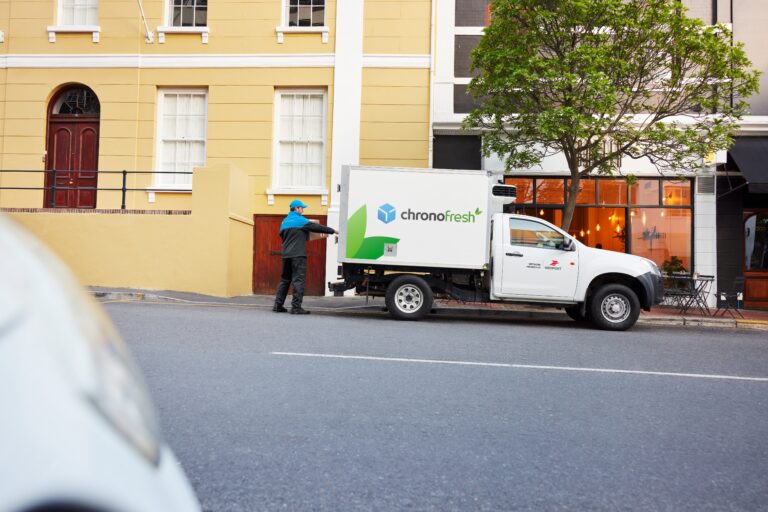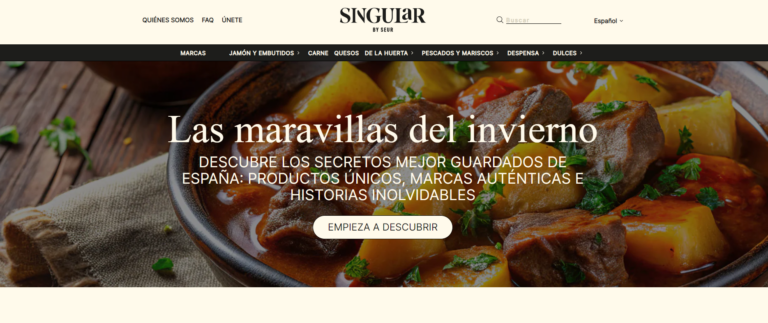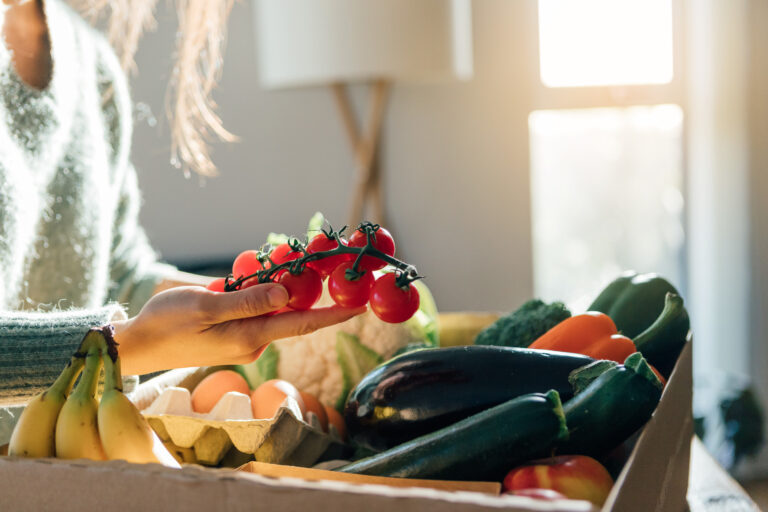Food Delivery Services: Mastering Food Expertise for Excellence
Business & Markets 20 January 2025
In this installation of The Current, we explore the key points related to Europe’s food delivery services market, and what expertise accompanies it. To get food safely onto your plate (or in some cases, a pet’s or a child’s), it’s a complex path! Find out what makes it possible.
According to Geopost food director Sandrine Malavieille, demand for temperature-controlled delivery is expected to grow over the next five years. But the capacity of different facilities and delivery services to satisfy this need for cold chain logistics varies enormously. From a supply chain perspective, how does one realistically manage temperature sensitive storage and transport?
At Geopost, we found it was critical to develop a comprehensive offer that works throughout Europe, designed on the basis of existing European legislation and laws. In less than two years, demand within our network for temperature-controlled food delivery services has doubled.
Tear a few pages out of our playbook!

Preferences and expectations around Europe’s online food delivery market
Clients expect comfort, flexibility and personalisation from their partners, in that order. 45% of e-shoppers are sensitive to their choice of delivery windows, which is especially important in the context of temperature-controlled food delivery services. It is critical to stay in touch with clients, ensuring they receive packages within an expected time frame so temperature conditions are maintained.
In Europe, Geopost released PREDICT, which helps manage delivery expectations within the last mile. E-shoppers use the website to decide what dates and windows they prefer for deliveries. In addition to monitoring food temperatures throughout transport, live alerts keep them abreast of the delivery as it occurs. They receive notifications the day before, then an hour or so before the delivery window, with evolving options to reprogramme their time if they are suddenly unavailable. In the event a client cannot be available, the package is returned to the depot and sent again the next day with temperature controls intact throughout the transport process.
Flexibility is essential. At the same time, it’s a complex variable that must be attentively organised and monitored for food safety. It is rare that in these rigorous conditions, customers cannot meet the delivery times allocated to them … but when this happens, controlled-temperature containment guarantees total food safety.
Additional mechanisms are also set in place to ensure food safety. Currently, the Geopost network takes food deliveries with expiry dates of within five days. Clients working with shorter timeframes, such as restaurants, can draft specific contracts for expiry dates within three days.
In a nutshell, fresh food delivery services remain a recent offering. To do it right, it’s important to ensure proper conditions are in place from the start, keeping security in mind for customers and within companies while managing the necessary cold chain logistics, even when variables change (life happens!).
Delivery windows must also be accounted for. In the case of B2B clients, for example, their food deliveries must arrive before restaurant services are slated to begin (noon). For B2C clients, optimisations are in progress to make this offer more convenient, such as fresh pudo (pickup and dropoff) deliveries.

Varied needs for frozen food delivery
While European standards for food safety can be safely applied throughout the continent, local (or domestic) standards can sometimes be even more restrictive. In some countries, there are certain customs and practices. It may be typical for B2B clients to receive frozen food deliveries on specific days, a standard around which their entire hospitality industry may be organised.
Because markets are so different, our network adapts in terms of how it serves them. In regions like France, Italy or Spain, where food has an elaborate history of export and transit, some enterprises have well established temperature sensitive offerings (including Chronofresh and SEUR Frio).
Other local businesses such as DPD fresh, BRT fresh and Cool Runnings are developing food delivery services in Belgium, Italy, Lithuania, Poland, Portugal and the Netherlands. Other markets in development include Slovenia, Croatia and Hungary. In these areas, we actively study market trends and consumer behaviours so the appropriate service can launch in a mindful manner.
A region's evolution from development to emergent can be quick. Lithuania was not expected to be a strong fresh food delivery segment at first glance, but Geopost’s e-shopper barometer study demonstrates it’s the most digitally-connected population in Europe. Controlled-temperature food delivery has since launched there, and it already has its own clientèle whose growth the service can accompany.
Every region may also have specialties. In 2025 fresh pet food is expected to see significant demand in many market segments; in other localities, oysters and meat are critical fresh food delivery staples.
Using European legislation as a starting point, it’s easy to adapt locally while ensuring interoperability between markets. International temperature-controlled food delivery services already exist between France and Belgium, France and Spain, and Spain and Portugal, providing people access to fresh goods from far afield. A growing number of clients are requesting this locally and throughout Europe.

That extra touch: Supporting artisans as they grow
It is a cherished value to support artisan food suppliers on their journeys. They are the guardians of our cultural flair and diversity throughout Europe.
In Spain, SEUR launched Singular, a digital platform that facilitates connections for food artisans. This market is composed of numerous small businesses and agriculturists. Transport and supply chains are not their expertise; instead, they make the magic that sparkles on the palate. Singular acts as a support enabling them to focus on their core business while we accompany them in the background.
Singular has subsequently launched in Italy. It may also develop in France and Portugal, two other well developed food artisan- and agriculturalist-rich markets.

Regulated and certified: Acquiring the necessary expertise
As mentioned, receiving European certifications for safety was a necessary prerequisite to developing a comprehensive temperature-controlled food delivery service. Geopost’s businesses are all HACCP (Hazard Analysis and Critical Control Points) certified; some, like Chronofresh and SEUR Frio, have already obtained ISO 23 412 certification in addition to the more standardised ISO 22 000.
As Sandrine observes, when you go into fresh food transport, you plunge into legislation with rigorous regulations. A transporter must design a master sanitary plan, an ensemble of documents describing rules, standards, evaluations and risks; and, based on your evaluations of risk, it’s critical to describe your plan of action if issues arise.
This documentation also includes the people responsible for ensuring the ongoing validity of these certifications as well as an archive of tests. Surprise third-party audits occur in all countries we serve.
This level of expertise in security and hygiene is crucial because incidents are likely to happen on the food delivery chain. A high level of control must be maintained at all times, which is ultimately the basis of our offer. One such example is product recalls. When these occur, a client may request that the Geopost network recuperate non-compliant products, which must be kept safely apart from other goods during storage and transport.

Technology's role in ensuring high-level safety
In addition to the innovations already mentioned, our most powerful asset in this endeavour was developing a proprietary Geopost ColdControl tool, which empowers us to monitor fresh and frozen food temperatures in real-time.
This is a market differentiator: a centralised, interoperable technology that aligns to European norms. It provides uniform monitoring of proper temperature controls as well as the management of parcel alerts, providing ourselves and clients a unique standard of quality.
ColdControl also reduces the deployment time of offers as we develop them, and is dramatically evolving. We are currently releasing phase II, building on the first version, which has been in operation for three years.
Phase II accounts for more elements as expectations shift in 2025. It will integrate interoperable management with other tools, flexibility, resilience, and improved scalability, along with system upgrades (like any new technology update!).

Where do food delivery services go from here?
In the years to come, Geopost aspires to become the undisputed leader in this field, in line with our ambition to be net-zero by 2040—a focal point of our overall corporate strategy.
Our biggest challenge lies in managing growth correctly while balancing service quality and greater sensitivity to market shifts. We'd like to serve the needs of Europe’s parcel cold chain logistics market more comprehensively, with multiple international offers; and that, too, must be balanced with sustainability.
This is a huge issue for transport in general, but especially so with food because of larger existential questions: how do we avoid and manage waste? One response we’ve found to this question has been by associating with the European Food Bank Federation. When something cannot be delivered, an appropriate food bank can take and distribute it to people in need.
We are also investigating temperature-controlled electric bicycles and vehicles in urban zones, in partnership with K-Ryole®, as well as co-loading products to optimise truck space. Both of these solutions contribute to our carbon reduction action plan.
These are efforts we are already seeking to put into place, but sustainability requires consistent progress. Because our attitude has always revolved around rigorous innovation, we’re confident in our ability to find new solutions as they arrive.
With the right tools at our fingertips, developed with these scenarios in mind, we’ll be able to quickly deploy … first locally, then throughout the Geopost network, ensuring that everyone benefits.
Meanwhilst, the food delivery market will continue to grow and mature, ensuring a tightly networked distribution scheme that is more circular and sustainable.

